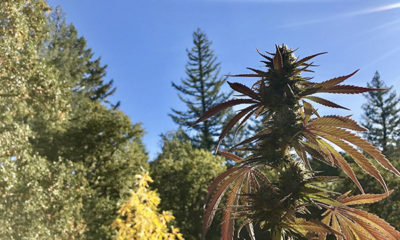
Joint Opinions
A House Divided Will Fall: How Marijuana Legalization Brings Society a “Democracy Dividend”
One of the greatest and least acknowledged failures of marijuana prohibition is the damage it has incurred on the relationship between American society and American government.
It is not just the overt alienation that prohibition creates in those Americans who claim marijuana use as a fundamental right; it is also the corrosive implications of marijuana prohibition policy on law enforcement, the harm done to racial and social minorities, and the erosion of democratic checks and balances.
On all these fronts, marijuana prohibition has done harm. From the individual rights perspective it is clear that prohibition alienates those who believe marijuana use is an exercise of a fundamental right to medicine or recreation.
From the law enforcement perspective, prohibition has gutted the Fourth Amendment checks protecting our persons, houses, papers and effects. To specific racial or social minorities, marijuana is a powerful excuse for law enforcement to harass, intimidate and incarcerate, feeding the world’s most powerful prison-industrial complex.
And, under legal mechanisms like civil asset forfeiture, basic checks on funding to law enforcement have become disconnected from citizen input; a process compounded by the actions of law enforcement unions, who have immense financial incentives to oppose grassroots reform movements.
At some margin, these forces alienate citizens from the very act of participating in their governments. After 40 years of the War on Drugs, this marginal corrosion of democratic participation has had pervasive effects. It has contributed to rabid narratives that challenge the basic purpose and existence of America; it allows hucksters to promote philosophies and politics that have little to nothing to do with reality; and it creates a pervasive discontent in Americans who simply want the peace and prosperity of a free society.
Marijuana users and advocates are for the first time awakening to the reality that they can have political power through organizing and engaging in this political process. Political victories, bought and paid for by people brave enough to spend money to reverse prohibition, have driven this awakening.
The political movement to legalize marijuana in America has the potential to re-enervate American democracy by empowering citizens who have been previously disempowered by the political and social effects of prohibition.
Marijuana law reformers should consider that their efforts are not just valuable in terms of achieving their immediate end—the legalization of marijuana—but also in meeting the challenge laid out in our founding document, that of forming “a more perfect Union”.
Do you agree with Eapen? Does marijuana policy reform create a “democracy dividend”? Tell us in the comments below!
























